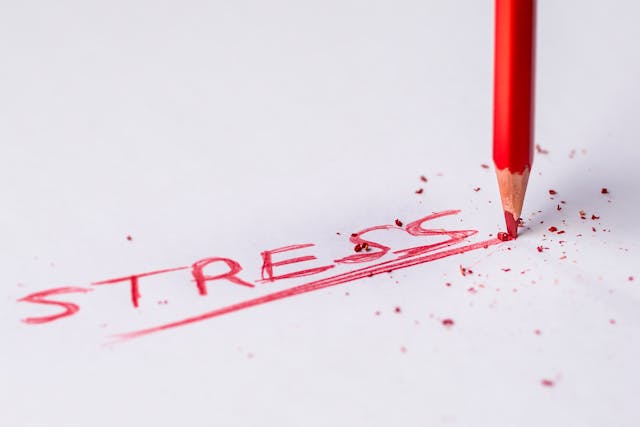Write Us: hello@ali5.org
Mental Health Awareness: Tips to Manage Stress in a Fast-Paced World
Struggling to keep up with daily pressure? Get practical, science-backed tips to manage stress, protect your mental health, and find balance in a hectic world.

Let’s be real, life moves fast, and most of us are barely keeping up. Between work pressure, social media, family responsibilities, and just trying to stay sane, stress has become the background noise of modern life.
But here’s the thing: stress isn’t just a passing feeling. When it piles up and goes unmanaged, it chips away at your mental health. It drains your energy, messes with your sleep, and makes even simple tasks feel overwhelming.
So, how do you manage stress without dropping everything and moving to the mountains? That’s what this guide is for. No fluff. Just practical ways to take care of your mental health in a world that rarely slows down.
Why Mental Health Awareness Actually Matters
Mental health isn’t about being “happy all the time.” It’s about emotional balance, resilience, and being able to handle life without falling apart.
The more we talk about it, the less stigma there is. And when more people understand what stress actually does to the brain and body, we get better at catching it early and helping each other out.
First, Understand the Signs of Stress
Not all stress looks like panic attacks or meltdowns. Sometimes it’s subtle and sneaky. You might be dealing with chronic stress if:
-
You’re always tired, even after sleeping
-
You feel irritated over small things
-
You find it hard to focus or make decisions
-
You’ve lost interest in stuff you used to enjoy
-
Your appetite or sleep patterns have changed
If any of this sounds familiar, you’re not alone, and it doesn’t mean you’re weak. It means you’re human. But it also means it’s time to take your stress seriously.
1. Set Boundaries (And Actually Stick to Them)
You don’t have to say yes to every request. You don’t owe everyone a reply right away. And working overtime every day isn’t a badge of honor; it’s a fast track to burnout.
Start here:
-
Limit work emails or messages outside work hours
-
Say no when you’re stretched too thin
-
Create a “do not disturb” time for yourself daily
Your peace matters more than people-pleasing.
2. Move Your Body (No Gym Required)
Exercise isn’t just for fitness; it literally helps your brain process stress. When you move, your body releases endorphins, your natural mood boosters.
Easy options:
-
A 20-minute walk
-
Dancing around your room
-
Stretching or yoga at home
You don’t need perfect form or fancy gear. You just need to move.
3. Protect Your Sleep Like It’s Gold
Lack of sleep makes stress worse. And stress makes sleep harder. It’s a vicious cycle, but you can break it.
Try this:
-
No screens 30 minutes before bed
-
Keep a consistent bedtime
-
Use calming rituals like herbal tea, journaling, or quiet music
Sleep isn’t a luxury. It’s a necessity.
4. Learn to Say “I Need Help”
Whether it’s a friend, family member, therapist, or support group, talking about what you’re going through helps lighten the load.
You don’t need to be “falling apart” to ask for help. You just need to be honest with yourself.
And if therapy feels out of reach, look for free online support groups, mental health apps, or even podcasts that talk openly about stress and anxiety. Just hearing others say, “Me too,” can be a huge relief.
5. Limit Your Social Media Diet
Scrolling isn’t always relaxing. In fact, it can fuel comparison, anxiety, and information overload. If you notice you feel worse after being online, that’s a red flag.
What helps:
-
Unfollow accounts that drain you
-
Take weekend social media breaks
-
Mute notifications when you’re overwhelmed
Your mental space is worth protecting.
6. Practice Saying “This Is Enough for Today”
You’re not a machine. You’re not meant to be productive 24/7. It’s okay if your to-do list isn’t finished. It’s okay to rest without “earning it.”
Create a habit of checking in with yourself. Ask:
-
Am I tired, or just feeling guilty for not doing more?
-
Do I need a break, or am I just running on autopilot?
Rest isn’t laziness. It’s fuel.
7. Make Time for Stillness
We’re so used to being busy that doing nothing feels wrong. But stillness is where your brain resets. You need quiet to process and breathe.
Start small:
-
5 minutes of deep breathing
-
Listening to calming sounds
-
Mindfulness apps like Headspace or Insight Timer
You don’t have to meditate like a monk, just be present with yourself.
8. Fuel Your Mind with the Right Inputs
Your environment influences your mood. If you’re surrounded by negativity, online or offline, it’ll wear you down.
Upgrade your inputs:
-
Uplifting playlists
-
Books or podcasts that inspire
-
Spending time with people who get you
Stress is real, but so is joy. Make space for things that lift you up.
Final Thoughts: You Deserve Peace, Not Just Survival
Managing stress isn’t about being perfect. It’s about choosing to take care of yourself, even in small ways, so that stress doesn’t control your life.
The fast-paced world isn’t slowing down. But you can. You can pause. You can protect your peace. You can say, “Today, I choose rest,” and that choice is powerful.
So take a breath. Take a break. Take care of your mind like it’s the most valuable thing you own, because it is.







